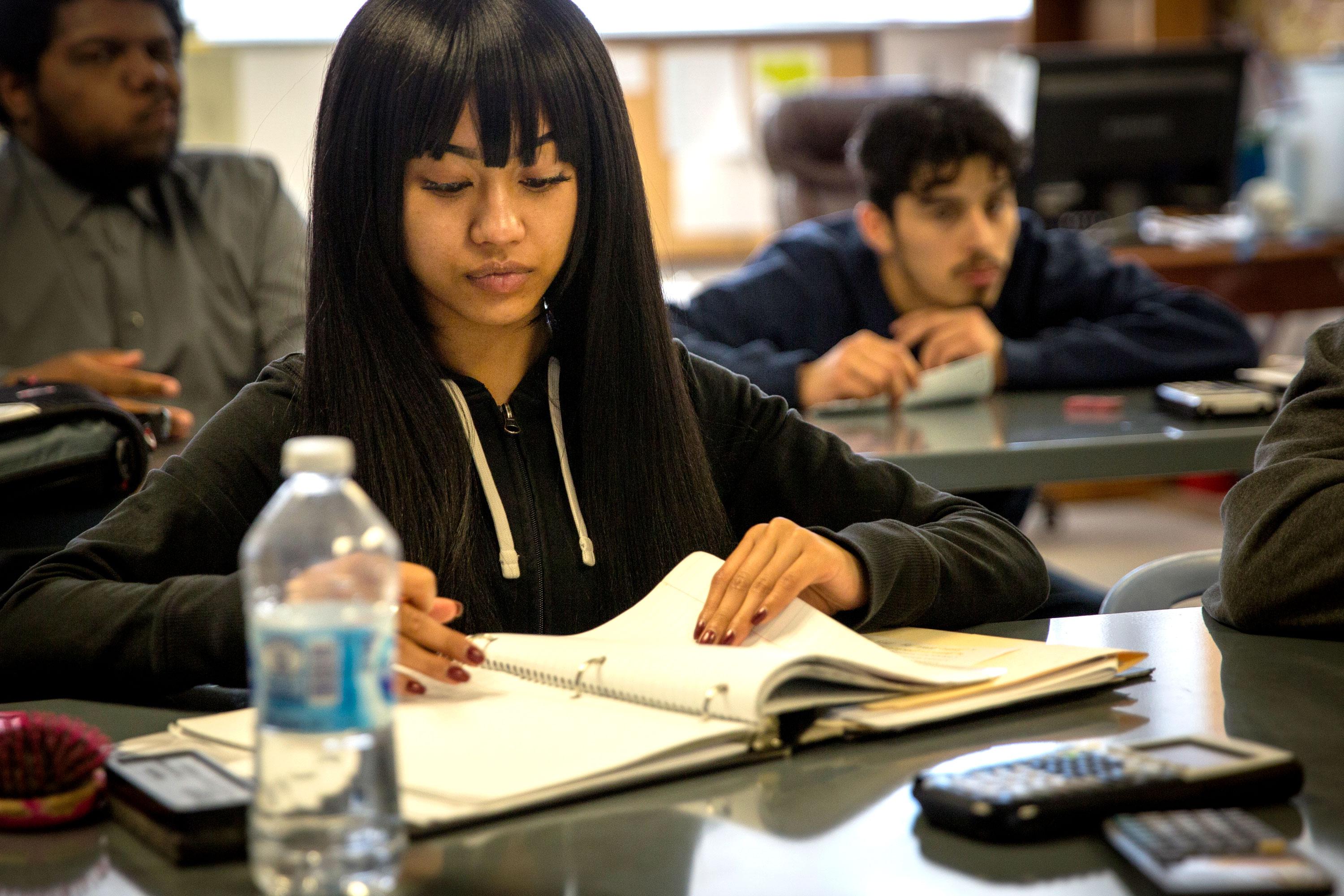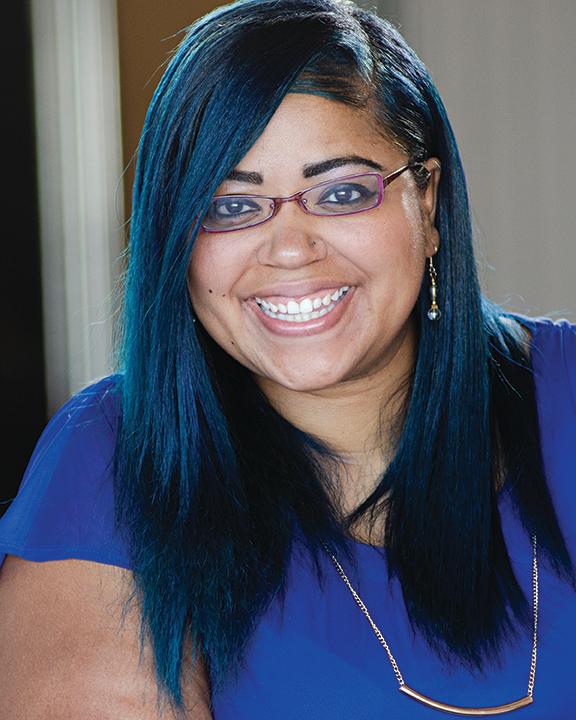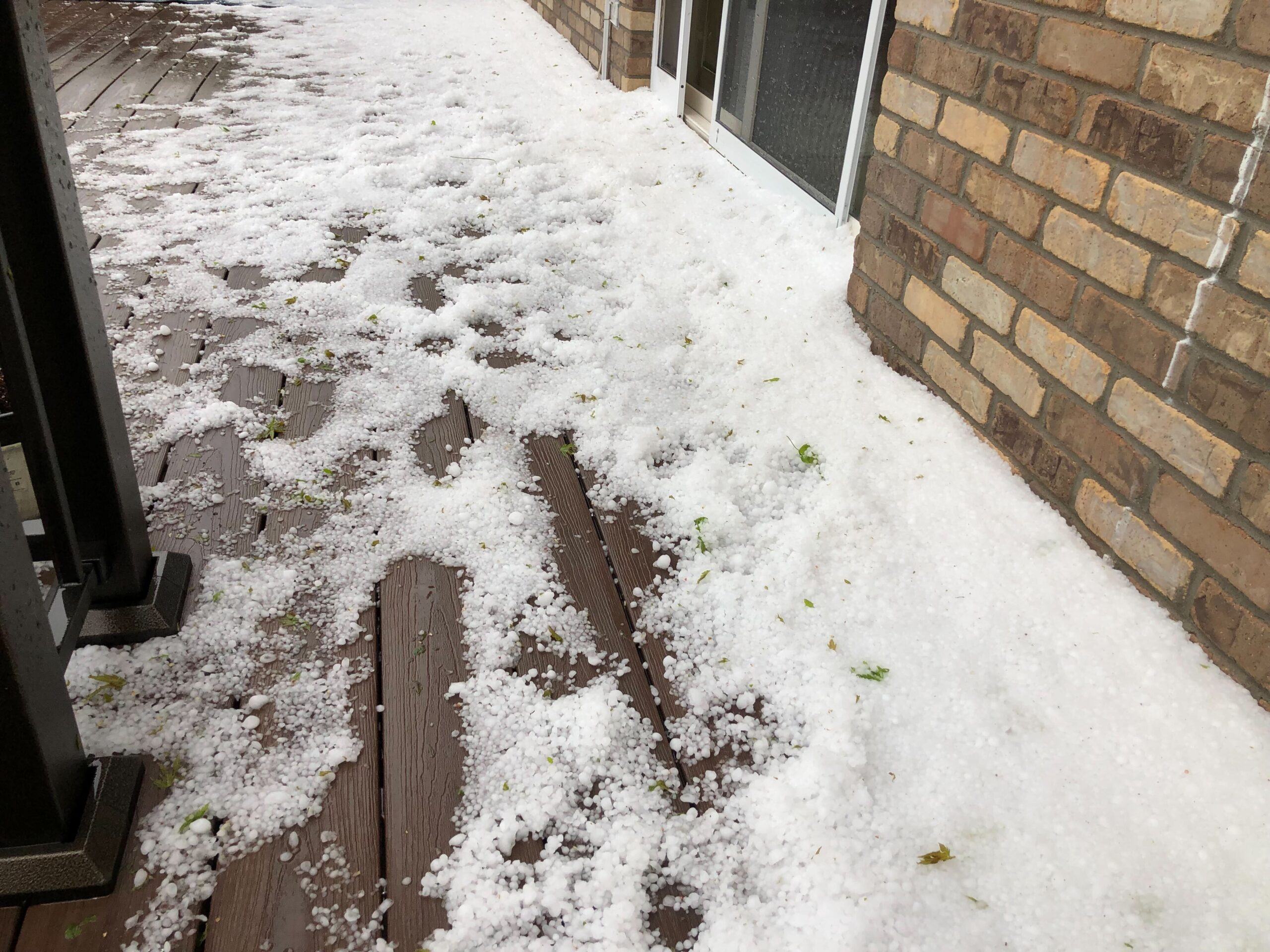

When TJ Cole worked as a magistrate in the Boulder juvenile justice system, he saw kids who needed help, who weren’t in school or were expelled and never came back.
“I had the wild idea, ‘Well, we’ll start our own program for the kids who are in our system.’” he said.
The original Justice High School was born in 2002. Designed for students whose lives didn’t mesh well with traditional schedules and graduation timetables, it served more than just the kids Cole saw in his courtroom.
It turned out it was a good place for those struggling in other ways too.
“They were in the juvenile delinquency system or in and out of rehabs,” Cole said. “Some of the kids were homeless, some of the kids were pregnant and have to be gone for a period of time.”
Denver Finds A Place For Struggling Kids
The Mile High City didn’t have a lot of options for kids who struggled in the traditional school system a decade ago. Cole spearheaded a Denver version which launched in 2009.
Gary Losh, the first principal for the school, said Cole and the Denver probation department approached him with the idea for Justice High. It was one he’d tried to get off the ground when he worked for Denver Public School’s Prep Center. The temporary program tried to get students prepared to return to traditional schools.
“After we had the students for one semester, maybe on year, we would then transition them back,” Losh said. “Well, they were all falling on their faces. So I approached DPS and said, ‘Hey, let’s graduate these kids from here.’ They didn’t like the idea.”
The success Cole had in Boulder made DPS reconsider and Losh put not only his heart and soul into the success of the school, but a good deal of his personal savings as well.
“One of the issues that I encountered was when I needed to find a building and furniture and stuff, the (Colorado Department of Education) will give you a $150,000 start up mat 3 years in a row for every new charter,” Losh said.
But those funds didn’t come up front, they came as reimbursements.
A small church at 4760 Shoshone on Denver’s Northside became the school’s first home. At that time, the school was solely Losh and it was his job to transport everything a school needs and get it set up. He cabled the entire church for internet. He recruited all the teachers and students.

Shelby Gonzales-Parker was one of the school’s first students. She attended because she knew Losh from Denver Prep where she’d been sent after her expulsion from middle school and later high school.
“I lost my brother when I was young. I was in a house of alcoholics and, you know, people doing drugs and was just really unhappy with my life in general,” Gonzales-Parker said. “I used to get in trouble a lot. My life was just in the complete wrong direction. I didn’t care about school, I didn’t care about really anything.”
She was on probation by the time she was 13 and five months pregnant at 16 when Losh offered her a spot at Denver Justice. It was a move that changed her perspective on education.
“I never had teachers before them who really cared about what I was going through and who didn’t treat me like I was just a bad student,” she said. “They treated me like I had gone through some problems in life and obviously was struggling from that, but that I could get through it and they were kind of the first ones to tell me that and make me believe that.”
That’s when Gonzales-Parker realized she wanted to become a teacher — and she did. She earned her Bachelor’s at Metro State in Denver and she now works at Contemporary Learning Academy, another alternative charter just across the street from Denver Justice.
Gonzales-Parker isn’t the only success story. Once DPS saw how successful Denver Justice was at retention and graduation, alternatives for these kinds of students started to pop up everywhere.
A Decade, A Legacy
Denver Justice High School, the school of second chances, is now celebrating its 10-year anniversary.
When they started, one or two students graduated a year. The graduating class of 2019 is 35, just over a third of the entire student body.
A big part of their success is that they didn’t use the mold of traditional schools. Denver Justice has four curriculum intensive quarters. That means 70 minutes of every subject, every day. Traditional schools run classes on a rotating schedule so it takes longer to get through the coursework.
A student who works hard and stays focused can earn 120 credits in one year — as opposed to 60 at a traditional school — and graduate in two years rather than four.
That also means that if a student misses out on school, they have the potential to jump back in quicker and miss less.
Justice High offers modified schedules for students who would otherwise be unsuccessful. Some don’t have a first period so they can drop a child off at daycare or have more travel time to get to class. Others only attend half of the day so they can go to work. Students can earn elective credits for work hours as well. Some students take packets of homework with them to jail or the hospital and are giving extended amounts of time to complete assignments
Probably the most unique aspect of Denver Justice is that it doesn’t remove students from their school, even if they continue to reoffend. That was an idea passed directly from Cole and Justice High in Boulder.
“We were with you to the end,” Cole said. “If you keep telling me you want to graduate and you want to be, you want to make it, but you go out tonight and steal something and get locked up, when you come out, we’re still here.”
Most of the students, just over 100 within its walls, struggled in some way at traditional schools. Some were in trouble, others grew up in abusive homes or had mental health issues and weren’t going to class.
None of that, however, has kept them from success at Justice.
Fifteen-year-old Kimberly Tobias said her tumultuous home life and anxiety kept her from classroom success. When she arrived at Justice a year ago she didn’t have any credits towards a high school diploma.
“I got in a lot of trouble and me and my sister we started smoking weed,” Tobias said. “Honestly, what drove me to not go to school or just sit outside and smoke was my anxiety.”
Part of that anxiety came from her sister’s placement in a group home, the other part came from so many rotating students, classes and teachers that didn’t even know her name or cared if she was there. She was kicked out of the system and told there were too many strikes against her.
“I was outta school for about three months,” she said. “[Denver Justice] was actually the first school out of all the schools that I went to see if they would accept me, that actually accepted me.”

Tobias is now a junior and will graduate next year at 16. She hopes to get her Bachelor’s in hospitality and own a restaurant one day.
Like Tobias, once students realize that they can catch up and will get individualized support from teachers and staff, they quickly begin to achieve, said Earth Science teacher Danielle Hudley.
“I hate what they’ve been told educationally,” she said. “And to see that turn around when they come here. That ‘Oh, I’m not that label I’ve been labeled this whole time.’ I can learn. I am smart.”
Hudley has been with the school since its inception. Like the students she also describes Denver Justice as a family. The wellbeing of the students is just as much a part of her job as their education.
“I like the smallness of the classroom, I like the familiarity of knowing my students, of knowing something about them,” Hudley said. “Of being able to look each one of them, know their name, know something about them.”
That familiarity helps them know when a student misses class or when they may need help for a situation outside of school. Many of the staff have done work that helps them to triage problems that students have in their personal lives.
Assistant Principal Tyler Bauer worked with youth experiencing homelessness and special needs students before he came to Justice. He said each staff member has their official role but that their success comes from their ability to wear many hats.
“Everyone is essentially someone that most students would feel comfortable going in and sitting down with and talking with like they’re almost in therapy without any of that clinical, discomfort formality. And that’s essential,” Bauer said.
When students get the message, they also get a vision for their futures and a path forward from their past.
Sophan Keth, a 20-year-old student, who will soon receive her diploma, got on the wrong track at another school when a boy there became obsessed with her. She went to her friends for help. Keth just wanted to confront him, but her friends had other ideas.
“I was still hanging out with the wrong crowd, hanging out with gangbangers,” she said. “They wanted to do extra things. And from there, that’s when I had got arrested.”
She spent time in jail for conspiracy to commit aggravated robbery with a firearm. Afterward, she was out of school for months as she searched for a place that would take her. Denver Justice did.
“It’s totally different. I just felt like I wasn’t alone that did some bad things that I regret,” Keth said. “Cause, there’s a few kids that did something bad and still wants to go back to school.”
We’re Not Perfect
Denver Justice Principal Stephen Parce said some students “just need one chance to get on track” and find a better life. The school’s philosophy is not to turn anyone away.
This isn’t to say that the school works for everyone. Despite the staff’s efforts, Principal Parce said their graduation rate is much lower than average for DPS.
“We’re not a perfect school, not a magic school. I have no Harry Potter Wand. I wish we were better, I wish were perfect.”
Those numbers are skewed because of the way DPS records graduation rates. While Denver Justice doesn’t score well on their four-year graduation rate, their seven-year graduation rate is right on par with most Denver high schools.
Many students come to Denver Justice with many unsuccessful years of schooling under their belts and sometimes their skill levels are so low the staff isn’t just teaching high school content, but basic skills as well.
Assistant Principal Bauer said the work is tiresome because there’s a lot of helping students manage their emotions and anxieties. As a staff, they make sure they stay energized and revitalized so that they can step into the work every day ready.
Of the Denver Justice students who graduate and choose to continue their education after high school, 100 percent are accepted into college or a higher education program, Principal Parce said.
Ginna Kenly, a 19-year-old senior who graduated this year, is one of those success stories.
Kenly’s mother and stepfather were drug addicts and she had to fend for herself. She traveled through as many states as her years and missed so much school. Denver Justice and the people she met here became her safety net. She’s now headed to Emily Griffith Technical College to start a journey toward becoming a pediatrician.
Beyond the education, she now has a much better outlook on life.
“I think it’s really beautiful, Kenly said. “I’m ready to fly, I’m so excited. I think I’m ready to soar.”









